Since the late 1990’s, Greenpeace has been actively campaigning on illegal logging in the Congo Basin Forest in Central Africa. Greenpeace opened its doors in the African continent by opening its first office in Johannesburg, South Africa in November 2008. Currently, Greenpeace Africa operates in 5 countries in Africa namely: South Africa, Kenya, Cameroon, the Democratic Republic of Congo and Senegal. Greenpeace Africa’s vision is an Africa where people live in harmony with nature in a peaceful state of environmental and social justice. Greenpeace Africa has always been more than an organisation. It is a diverse, multinational, multicultural movement of ordinary individuals determined to bring about extraordinary changes necessary to realise a greener, more peaceful future for Africa. Our main campaigns are Climate and Energy (South Africa), Oceans (Senegal), Forest (Cameroon and DRC), Plastic (Pan African) and Responsive Campaigning (Kenya)
Greenpeace Africa’s 7 values of ubuntu, courage, integrity, diversity, justice, freedom and transparency and living with harmony in nature guide our campaigns and our way of working. Over the years, Greenpeace Africa has had great impacts and numerous wins in campaigning for a sustainable and healthy environment. A few of these success stories and impacts are highlighted below:
In 2012, Greenpeace Africa campaigning led to a decision by the Senegalese government to cancel 29 licenses of foreign fishing vessels that were suspected of illegal fishing. This victory helped highlight the illegal and unregulated fishing in the West African waters. Greenpeace later in 2015, exposed a vast gross tonnage scandal that had been ongoing for over 30 years. The Senegal Fishery Minister immediately responded and approved recommendations for administrative inquiry. This later was translated into ministerial directives on gross tonnage standards currently being implemented. Greenpeace Africa continues to urge the governments of West Africa to ensure that declining fish stocks are managed and secured, first and foremost to feed people in the region as most West Africans depend on them for their livelihoods.
In March 2015, Greenpeace Africa published a report on the illegal logging activities of Compagnie de Commerce et de Transport (CCT) and its Dutch trading partner-Fibois BV. Greenpeace later filed a complaint against Fibois BV in a dutch administrative court for non-compliance with the rules of the European Timber Regulation (EUTR) and acting negligently when importing timber from Cameroon. Fibois was therefore sanctioned by the Dutch authorities in 2017. The court used Greenpeace meticulous reports as evidence against the timber company.
In 2016, at a roundtable discussion organised by Greenpeace, three of South Africa’s top Five Retailers, Massmart, Pick n Pay and Woolworths, indicated their commitment to lobby for an enabling framework that will allow for renewable energy expansion in South Africa. The move from the retailers was a follow-up action in response to the report “Shopping Clean: Retailers and Renewable Energy” that was launched by Greenpeace in April the same year. In the report, the five biggest retailers in South Africa were ranked against each other in terms of their current investments and commitments to renewable energy. The report formed part of the broader renewable energy champions campaign which was aimed at getting retailers to commit to a 100% renewable energy future. Greenpeace Africa successfully crowdfunded more than R100 000 (USD 6500) to install solar street lights in Diepsloot, an off-grid urban community in Johannesburg. The community received 8 solar street lights that are providing safety to its residents.
In 2017, Greenpeace Africa exposed two cases of illegal logging licences in the Democratic Republic of Congo. This resulted in the DRC government cancelling these licenses, upholding the long moratorium on logging concessions which had been in place since 2002. This was after a Greenpeace probe found that the DRC environment minister had authorised the two logging concessions, which covered more than 4,000 square kilometers. If approved, this would have resulted in 10 to 30 million hectares of the forest in the DRC disappearing.
In the same year, as a result of a joint venture between Greenpeace Africa and Guinea authorities, 3 arrests of fishing vessels, illegally operating in the waters of Guinea were nabbed. The vessels were caught with shark fins and illegal nets and were fined 250,000 and 350,000 Euros respectively.
In Kenya, Standard Bank (Stanbic) withdrew funding for the Lamu coal-fired power plant. Kenya’s government had planned to put up a 1050 MW coal-fired power plant in a UNESCO world heritage site. This was achieved in an initiative led by our partners, 350.org and Save Lamu, who have been at the forefront of the deCOALonize Kenya Campaign which Greenpeace Africa is a part of. Later in 2018, Lamu residents were overwhelmed with joy after Kenya’s National Environment Tribunal (NET) finally cancelled the license for the construction of the Lamu Coal Power Plant. This is a major victory proving that people’s voices matter when it comes to the kind of development they want in their country.
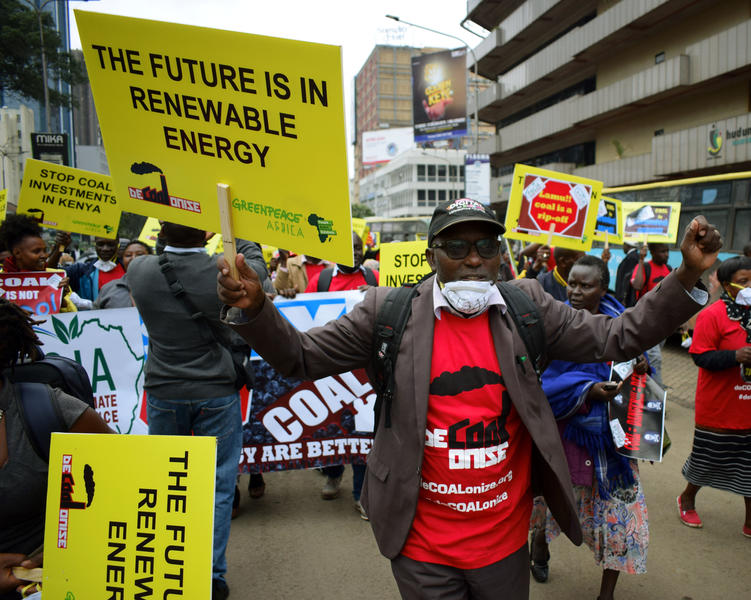
In April 2020, Greenpeace Africa joined a call by local people in Cameroon’s Littoral Region to immediately cancel government plans to turn an area of nearly 150,000 hectares of pristine forest designated for a national park into two logging concessions. More than 40 communities surround the Ebo forest and rely on the forest for food, medicine and cultural activities. In 2006, the Cameroonian government designated Ebo forest a proposed National Park, although no decree was ever signed. Thanks to the support of about 30,000 people and the resistance of local communities around Ebo forest, the President of Cameroon suspended logging plans in August same year.
All these victories have not been without challenges. Poor governance, political instability and political interferences, insecurity have posed real threats to the work Greenpeace Africa has been undertaking. However with the support of communities and like minded organisations where we work, we have gone past these challenges for a just and sustainable future for Africans by Africans.
As we share in celebration of all these victories, we can not forget the people behind the success of these campaigns, our donors, supporters, volunteers, activities, communities we have worked with and not forgetting our staff members who have been very instrumental in making the environmental movement in Africa a reality. Here is to another 50 years of people powered campaigns.
We value our independence, which means we take no funds from governments or corporations.
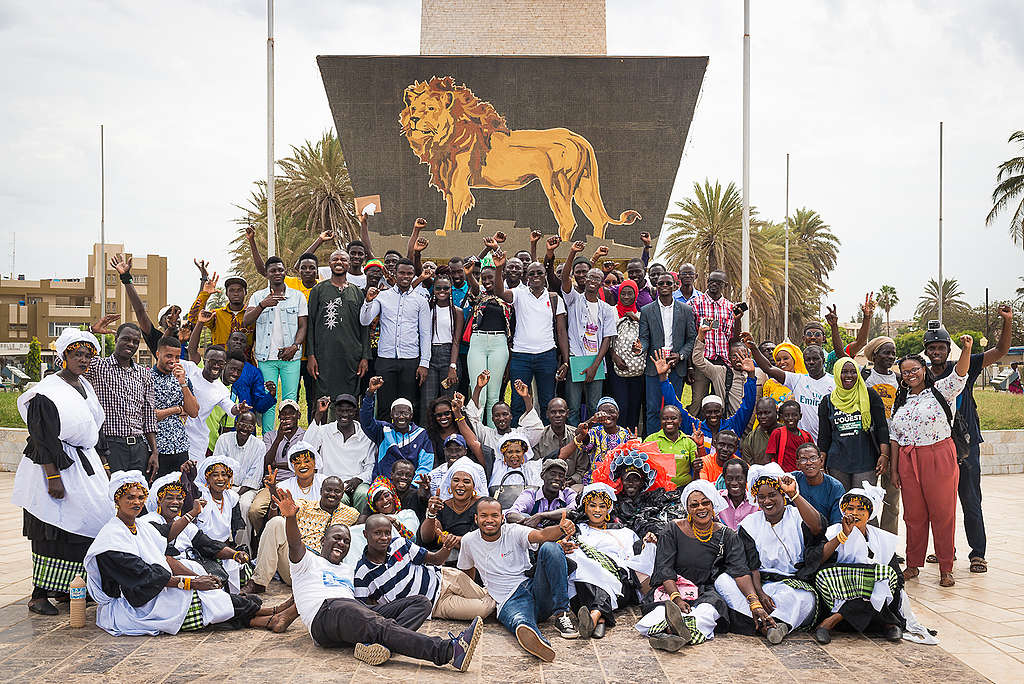

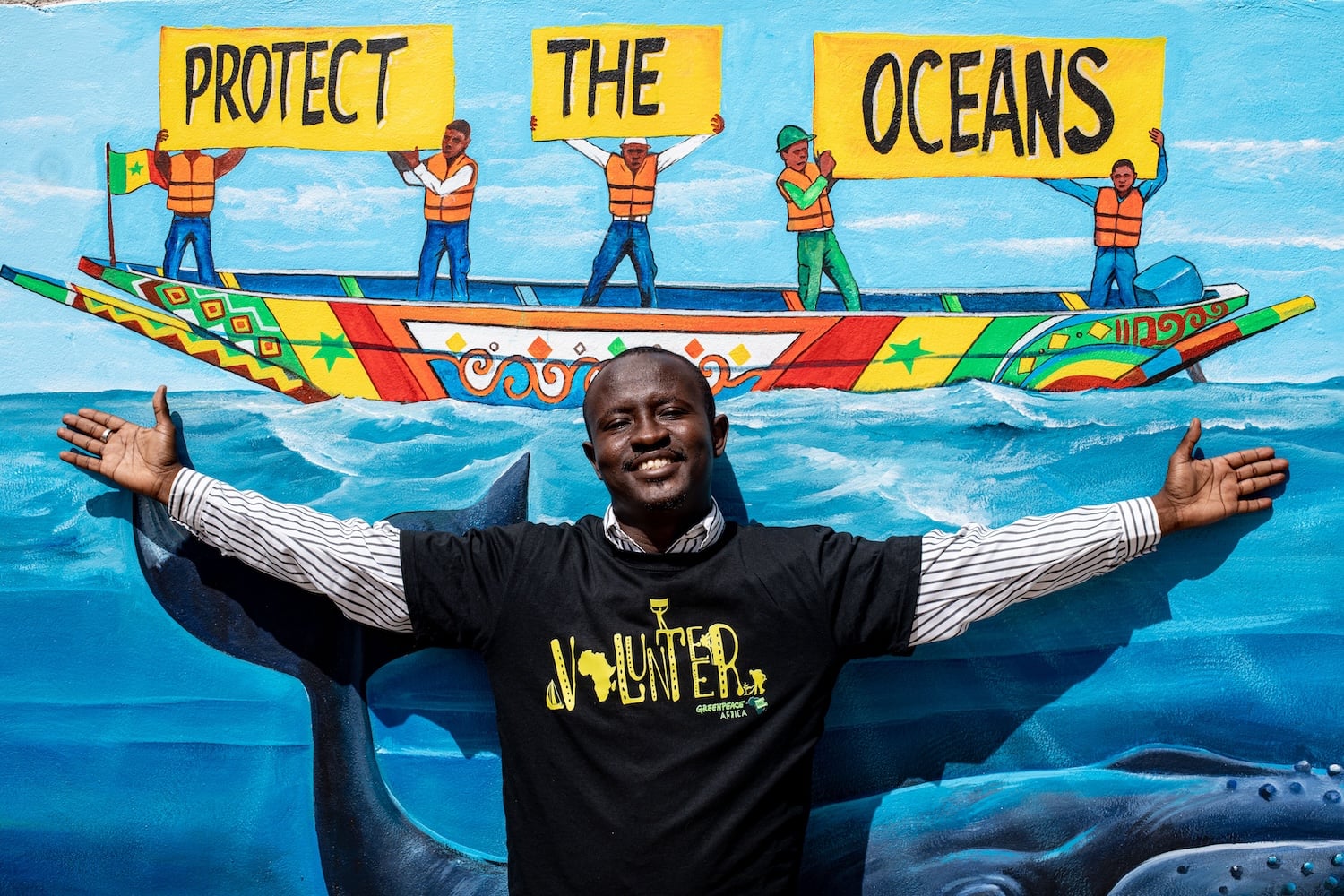
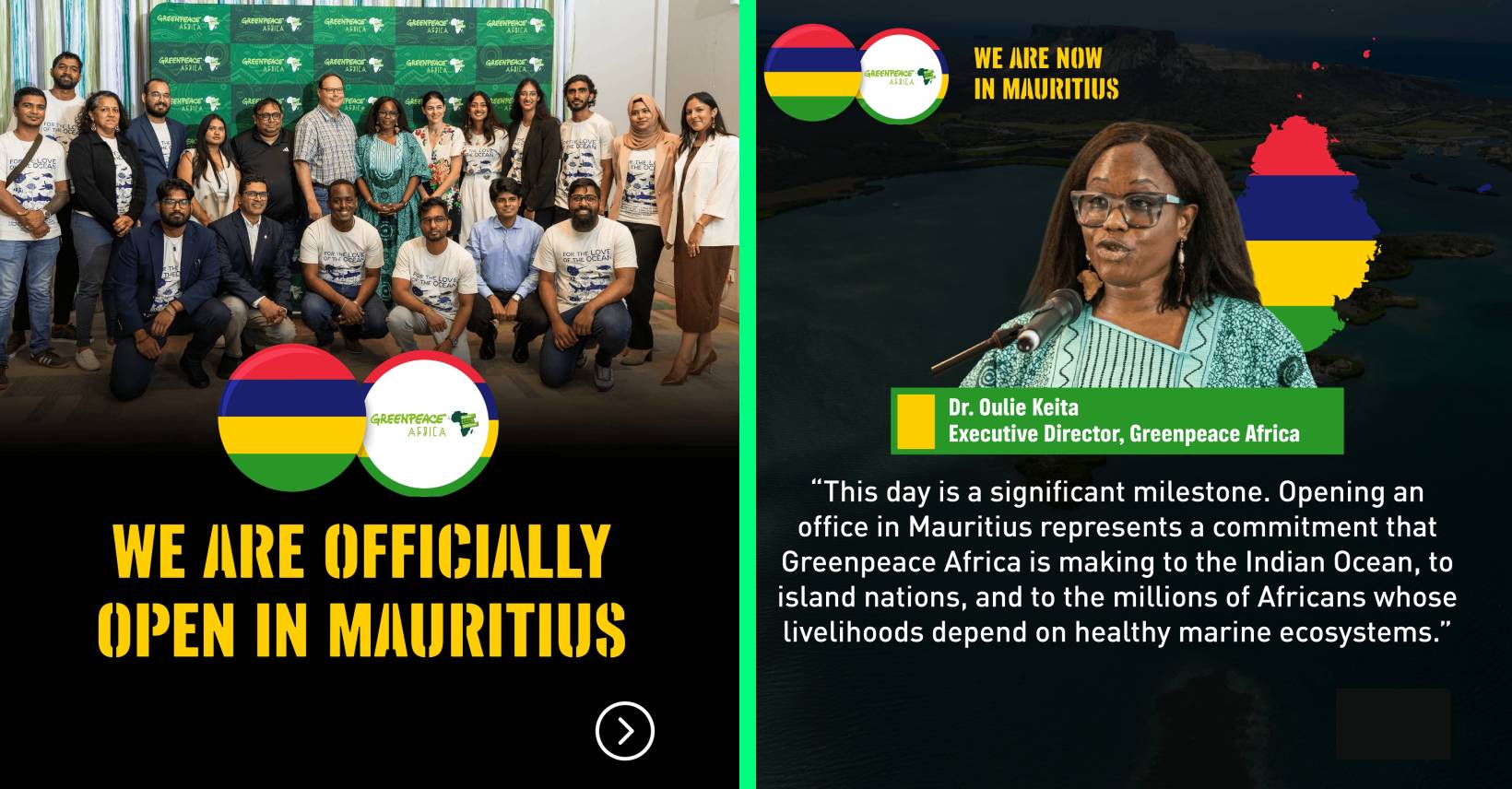
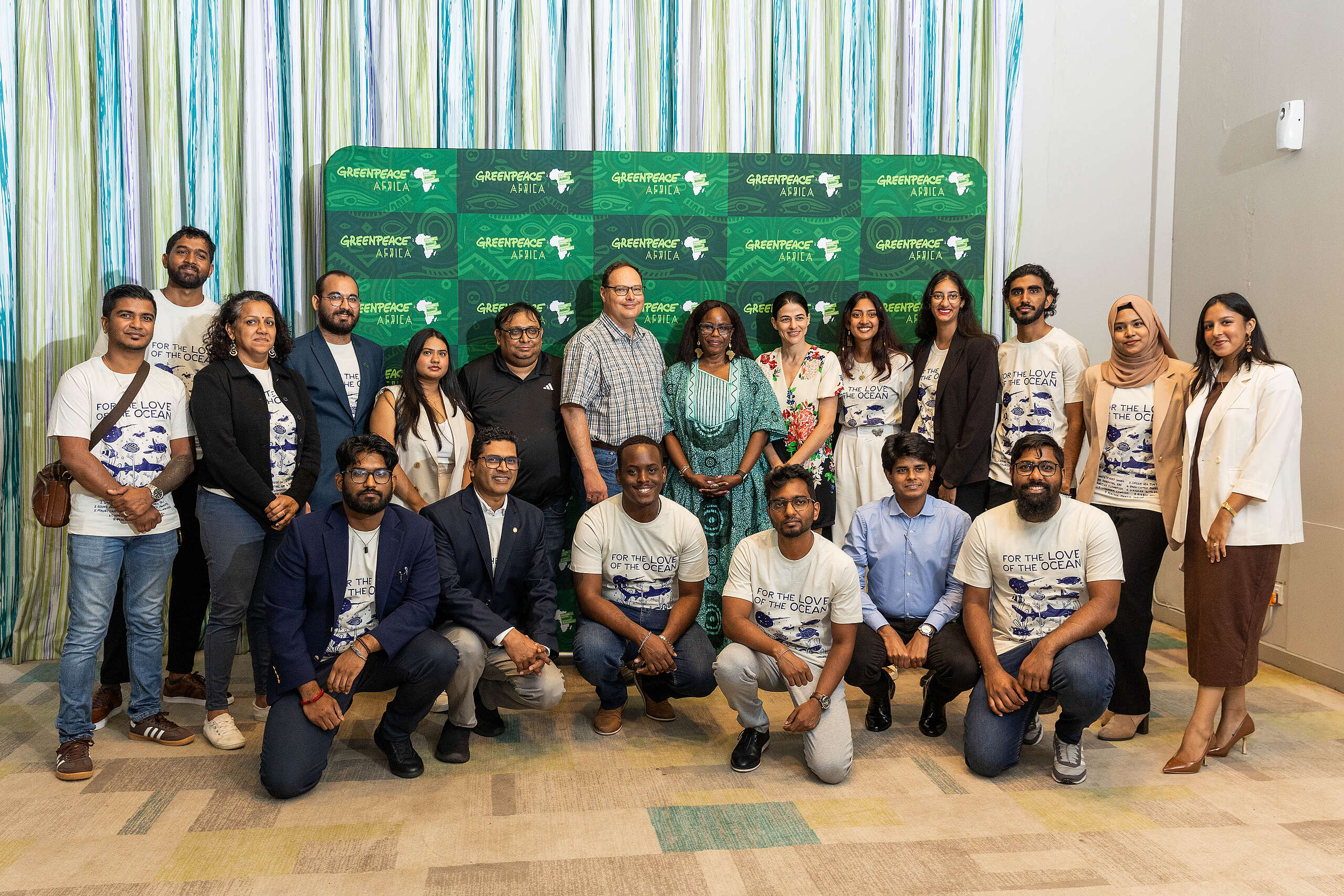
Discussion
Great opportunity
💚
Use of plastic bags
Thank you for your comment. Kindly share with us why you say this? We like to hear your response.
Interested to have GREENPEACE in Bomet County
💚